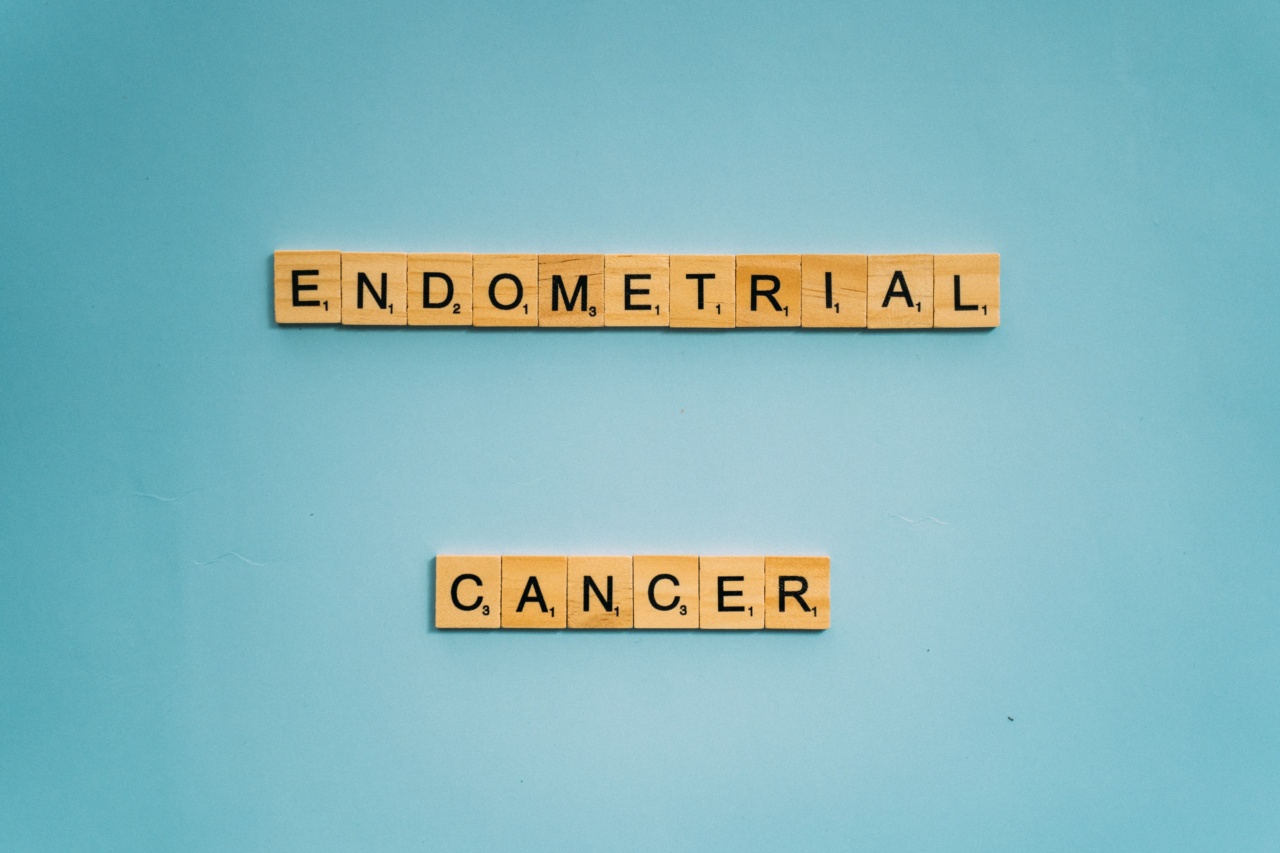Endometrial cancer, also known as uterine cancer, is a type of cancer that develops in the lining of the uterus. The uterus is the reproductive female organ responsible for holding and nourishing a fetus during pregnancy.
The endometrium, which is the inner lining of the uterus, thickens every menstrual cycle in anticipation of pregnancy and then sheds during menstruation if pregnancy does not occur.
What are the Risk Factors for Endometrial Cancer?
Although the exact cause of endometrial cancer is not known, several risk factors have been identified that increase the chances of developing the disease. These risk factors include:.
- Being postmenopausal
- Never having given birth
- Having a family history of endometrial, ovarian, or colorectal cancer
- Being overweight or obese
- Having diabetes
- Exposure to estrogen therapy without progesterone, such as in hormone replacement therapy (HRT)
- Starting menstruation at an early age, before 12 years old
- Reaching menopause at a late age, after 55 years old
- Having a history of endometrial hyperplasia, a condition in which the lining of the uterus becomes too thick
What are the Symptoms of Endometrial Cancer?
The most common symptom of endometrial cancer is abnormal vaginal bleeding, particularly in postmenopausal women or those with irregular periods. Other symptoms may include:.
- Abnormal discharge from the vagina
- Pain during sexual intercourse
- Pain in the lower abdomen or pelvis
- Weight loss without intention
How is Endometrial Cancer Diagnosed?
Endometrial cancer can be diagnosed through a series of tests, including:.
- Transvaginal ultrasound: a probe is inserted into the vagina to capture images of the uterus and other pelvic organs
- Biopsy: a small sample of the endometrium is taken and examined under a microscope to check for cancerous cells
- Hysteroscopy: a thin tube with a camera on the end is inserted through the cervix into the uterus to examine the lining
- Dilation and curettage (D&C): the cervical opening is widened, and a sample of tissue from the uterus is removed for examination
How is Endometrial Cancer Treated?
The treatment of endometrial cancer depends on various factors such as stage, size of the tumor, and general health condition of the patient. Treatment options may include:.
- Surgery: The most common treatment for endometrial cancer is a hysterectomy, a surgical procedure in which the uterus, cervix, and ovaries are removed. In some cases, a lymph node dissection may be necessary to check for the spread of cancer.
- Radiation therapy: high energy X-rays are used to kill cancer cells. It may be used after surgery or in advanced cases of endometrial cancer to shrink the tumor before surgery.
- Chemotherapy: powerful medications are used to kill cancer cells throughout the body. It is usually used when the cancer has spread or recurred after treatment.
- Hormonal therapy: medicine is used to block or lower the amount of estrogen in the body. This treatment is used to reduce the risk of cancer recurrence or to treat cancer that has spread outside the uterus.
How to Prevent Endometrial Cancer?
Although there is no sure way to prevent endometrial cancer, there are several lifestyle changes women can adopt that can reduce their risk of developing the disease. These include:.
- Regular exercise and maintaining a healthy weight
- Avoiding the use of HRT or discussing with the doctor to use lower-dose or progesterone-containing hormones
- Eating a well-balanced diet that is low in saturated and trans fat, and high in fruits, vegetables, and whole grains
- Having regular gynecologic check-ups, and reporting any abnormal vaginal bleeding or discharge to the doctor immediately
- Discuss with the doctor and taking medications prescribed to lower the risk of endometrial cancer if there is a high risk
What is the Prognosis for Endometrial Cancer?
The prognosis for endometrial cancer depends on the stage, size, and grade of the tumor, as well as the general health condition of the patient. Generally, the earlier the cancer is detected, the better the prognosis.
Most women with endometrial cancer are diagnosed at an early stage and are cured by surgery alone. The 5-year survival rate for women with endometrial cancer is about 81%, according to the American Cancer Society.
When to See a Doctor?
Any woman who experiences abnormal vaginal bleeding or discharge, pelvic pain, or pain during sexual intercourse, especially after menopause, should see a gynecologist immediately.
Early detection and prompt treatment are crucial for an improved prognosis.





























